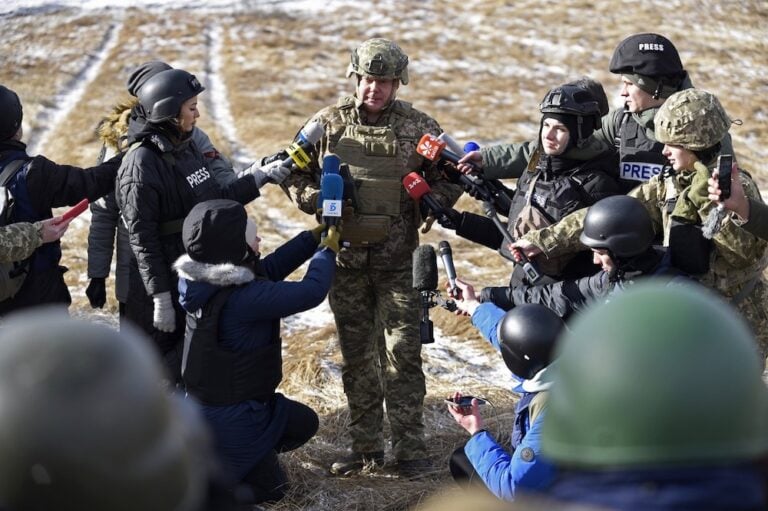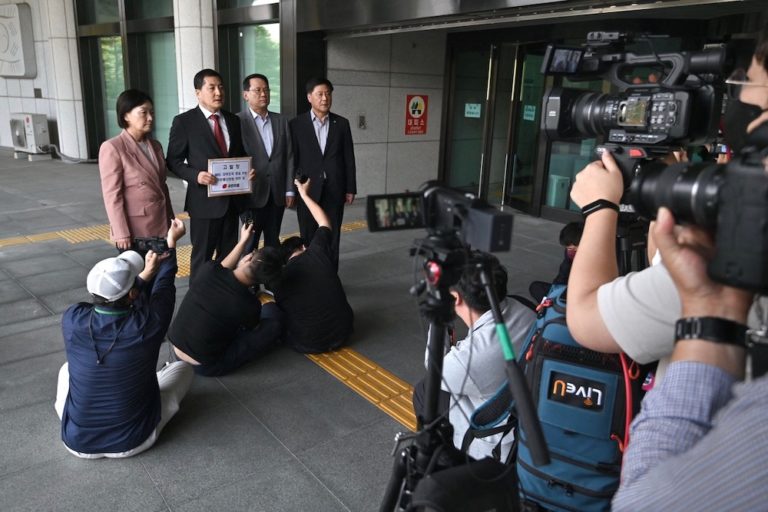(IFJ/IFEX) – The following is a 10 September 2001 IFJ media release: Journalists Say Press Tax Probe in Korea “Not Unfair” And Backs Case for Urgent Media Reform A mission of inquiry by the International Federation of Journalists to Korea has backed calls for reforms of Korean media, but has rejected claims that prosecution of […]
(IFJ/IFEX) – The following is a 10 September 2001 IFJ media release:
Journalists Say Press Tax Probe in Korea “Not Unfair” And Backs Case for Urgent Media Reform
A mission of inquiry by the International Federation of Journalists to Korea has backed calls for reforms of Korean media, but has rejected claims that prosecution of some publishers on tax fraud charges threatens press freedom.
“While it would be a legitimate concern if there were clear evidence that the government has used tax laws to unfairly focus attention on media companies, we have not found such evidence,” concluded the three-person delegation.
The IFJ, which held its World Congress in Seoul in June, says reforms to create more transparency, more editorial independence and more pluralism in the Korean press are urgently needed. But the reform movement has been overshadowed by investigation and prosecution of some of the country’s leading publishers by the National Tax Service and the Korea Fair Trade Commission.
The mission, which met with a range of newspaper editors and journalists, concluded:
“Journalists everywhere recognise the right of democratically elected governments to levy taxes and to enforce payment of those taxes. Media companies have a particular responsibility to set an honest example.”
“We have found continued evidence that the Korean media operates in a climate of general press freedom and we have found no evidence that the rights of journalists to inform the people of Korea are being compromised by current government actions.”
The IFJ has criticised the response of media owners over their tax difficulties. Some have claimed the tax inquiry is an attempt to muzzle the press. “Media owners undermine press freedom when they confuse their financial corporate interests with the right of freedom of expression,” said the IFJ.
“The process of media reform should not be blown off course by the prosecutions launched against individual media companies,” said the IFJ. The issues are now before the courts and should be settled according to Korean law.
The IFJ delegation praised the Journalists Association of Korea over its campaign for media reform. The government should “support these reforms,” which are “driven by the industry itself and based on the needs and desires of the people.” The IFJ will continue to monitor media freedom in Korea and pledged to send a new delegation if needed as developments unfold.
The mission consisted of: Christopher Warren, President, International Federation of Journalists; Rory MacLeod, President, National Union of Journalists of Great Britain and Ireland; and Jane Worthington, Deputy Director, IFJ Asia-Pacific Project Office.


